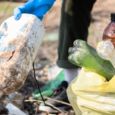The Department of Health (DOH) raised a national dengue alert this July 15, Monday. Health Secretary Francisco Duque III justified the alert “due to the rapidly increasing number of cases observed in several regions.” However, it is important to note that there is no national epidemic of dengue since the cases are localized.
Duque explained that despite a national alert being raised, “it’s localized. It can be said that [it is at most at the] regional level.” An alert is triggered by “an increase in the number of cases above the threshold level”, where alert threshold refers to “the level of occurrence of disease that serves as an early warning for epidemics” according to the Manual of Procedures for the Philippine Integrated Disease Surveillance and Response.
A total of 106,630 dengue cases have been reported from January 1 to June 29, 2019. The following regions have already exceeded the epidemic threshold:
- Western Visayas – 13,164 cases
- CALABARZON – 11, 474 cases
- Central Visayas – 9,199 cases
- SOCCSKSARGEN – 9,107 cases
- Northern Mindanao – 8,739 cases
While the following have exceeded the alert threshold: Ilocos Region, Cagayan Valley, Calabarzon, Bicol, Eastern Visayas, Zamboanga Peninsula, Davao, Bangsamoro Autonomous Region in Muslim Mindanao, and Cordillera Administrative Region.
(LOOK: These Shirts are Water-Resistant, Mosquito-Proof, and Odor-proof)
The alert was declared in order to raise awareness of the danger and to campaign prevention methods. According to Duque: “This is the first time that we’re declaring a national alert. Because the objective is very clear. We want to raise awareness among the public and more importantly, in communities where signs of early dengue increases are evident.”
In line with this, the DOH urges the public to keep in mind the 4S strategy which is supposedly the most effective prevention for dengue. This 4S strategy is:
- Search and destroy mosquito breeding places
- Self-protective measures like wearing long sleeves and use of insect repellent
- Seek early consultation on the first signs and symptoms of the disease
- Say yes to fogging if there is an impending outbreak
(FUNNY: This guy put out a warning to all other mosquitoes who might try to approach)
Dengue is usually detected by a sudden onset of fever for 2 to 7 days, and at least two of the following symptoms: headache, body weakness, joint and muscle pains, pain behind the eyes, loss of appetite, vomiting, diarrhea, and rashes.
Do you have your own tips to avoid and prevent dengue? Share them with us in the comments!





